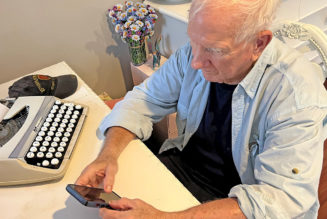
A national poll revealed that approximately 90 percent of Americans over age 50 want to stay in their homes as they grow older. To stay in your own home as you age is called “aging in place.” As health care costs continue to rise, aging in place may be more beneficial than admission to an assisted living facility. Your loved one may age in place by living alone or with family, friends, or other caregivers.
-
Aging in place is when someone remains in their home as they age independently or with supports in place.
-
Your loved one needs to budget for the cost of assistance for their own care and the care of their home if they are unable to manage it themselves.
-
Planning to age in place needs to start today. It is never too early to prepare.
-
Aging in place may be ideal both personally and financially, but if care becomes too complex to be managed at home, a long-term care facility may be a safer option.
Who needs aging in place?
Planning for the future is imperative if a loved one wishes to live independently in their home. Preparing is vital to maintaining a healthy lifestyle. Their current state of health and wellness will determine their care needs. People with chronic health conditions such as COPD, diabetes, arthritis, or heart disease may have more frailty and require more care and attention than someone with fewer to no health issues.
How to plan for aging in place
No matter the age and stage, now is the ideal time to start planning for aging in place. It may be challenging to envision a future with reduced abilities, but it is essential to consider and plan thoroughly to avoid any unexpected situations. Some factors to consider for aging in place include:
Finances
Organizing finances is probably the most essential factor to consider. Preparing your loved one to remain in their home will mean budgeting for expenses such as hiring a private caregiver, a housekeeper, or a home maintenance worker. Some factors to consider include:
- Insurance. Private insurance or Medicare may cover some costs, but you must contact the provider for clarification.
- Savings. Many people rely on their savings, retirement funds, or investments to pay for their needed care.
- Home ownership. In some cases, homeowners may need to sell their homes to free up the available funds they need.
- Living situation. If your loved one lives alone, they may need to consider having a family member move in. They could pay them a wage or offer room and board in exchange for their help.
- Power of attorney. Your loved one may designate someone they trust as their durable power of attorney. If or when someone cannot look after their own financial and personal care needs, they will have someone to manage their affairs.
- Advanced directive. Contact a lawyer or a geriatric care manager to assist with these advance directive decisions.
Home safety
Even though most Americans over age 50 want to remain in their homes, a poll by the University of Michigan revealed that almost half of those adults have given little to no consideration to the necessary modifications to their homes or lifestyle to fulfill this wish. Is your loved one in a home that will suit their changing needs as they age? Here are some home-related things to keep in mind:
- Safety assessment. A home safety assessment will help to determine if your loved one’s home needs modifications.
- Stairs. Consider a bungalow-style home or move the main bedroom downstairs if your loved one is in a two-story house with bedrooms upstairs.
- Elevator access. They may consider moving to an apartment or condo with an elevator.
- Chair lift. Consider installing a chair-lifting device if the house has stairs.
- Bathroom safety. Bathrooms may require bars at the bathtub and toilet to facilitate mobility.
- Door width. You may need to widen door frames to accommodate mobility equipment such as walkers or wheelchairs.
Your community may have resources funded by the government or other non-profit organizations to assist older adults to age in place. These resources may be free or may require a small co-payment.
The Administration for Community Living has an Eldercare Locator database that helps connect you to your state’s organizations that offer support for older adults. The National Aging in Place Council also offers valuable resources, and your local Chamber of Commerce may have information on resources specific to your community.
Technology and assistive devices
Technological advances lend several options to ensure home safety for people who wish to age in place; innovations will only improve over time. Companies such as Google and Alexa have several smart devices for communication and monitoring to create a safer environment. These devices offer a variety of benefits, including:
- Connection. Easy to use video calling devices such as Google Nest and Alexa Echo Show can connect with family to combat loneliness.
- Monitoring. Many appliances have smart technology that allows for remote monitoring, and technology can be used to ensure fire safety.
- Medical alerts. There are wearable devices that monitor medical conditions with fall detection and location tracking to provide peace of mind for families.
Meals and nutrition
Preparing nutritious meals may become more challenging as your loved one ages, so they may need to consider a meal delivery service.
Many communities have a Meals on Wheels program to deliver hot meals to older adults and people with limited abilities. Some restaurants and catering companies offer frozen meals or family meals that can be portioned out for the week. If a family lives nearby, consider having them provide a regular meal to ensure nutrition and connection.
Personal care
As your loved one ages, they may have challenges with their personal care routine. Depending on their physical ability, getting in and out of a shower or tub could become increasingly difficult.
If a family lives nearby, they may be able to assist with showering and bathing. Sometimes a person only needs someone in the home “just in case.” If more extensive care is needed, a family member may need to move in to provide help. Your family member may need to hire a private healthcare aide or nurse. You may be able to receive government assistance for financial aid or support from funded providers.
Medication management
Remembering to take medications can be challenging when someone is on several drugs. One study published in the Bulletin of Emergency Trauma found that medication compliance in older adults was responsible for one-third of preventable drug-related hospital admissions. In contrast, other studies estimate that number to be anywhere from 10 percent to 69 percent of all admissions. Some tips to help with medication adherence are:
- Pharmacy help. The pharmacy may offer a compliance packaging system at a small cost to ensure they have all the necessary medications at the correct times.
- Technology. An alarm on your phone or smartwatch can be a helpful reminder to aid compliance.
- Dispensing systems. Several closed medication dispensing systems, such as MedaCube, Spencer, and Phillips, are available to dispense and remind users to take their medications, but they will have an additional cost.
- Medication review. You can contact your loved one’s pharmacist for a medication review to ensure they are on the correct medications and to recommend a compliance management system for their needs.
Transportation
Your loved one may still have a valid driver’s license and be able to get around to appointments or shopping, but what happens if they do not drive or have lost their license due to a medical condition?
- Friends and family. They may ask a friend or family member to assist with transportation.
- Taxis and public transit. They can use taxis or public transportation. Some communities offer discounted taxi and transit fares for older adults. Some public transportation agencies have paratransit options for older adults that will pick them up and drop them off at their destination.
- Community support. Non-profit organizations sometimes offer supported transportation for older adults.
When aging in place is no longer an option
When aging in place, a time may come when your loved one is no longer safe to live at home due to declining conditions requiring round-the-clock care. Despite all the measures used to stay at home, a person aging in place may need to consider going to either an assisted living facility or a long-term care home, otherwise known as a nursing home.
You will find costs associated with an assisted living facility, though, in some states, Medicare may cover some fees depending on your situation. If you are unsure about government programs concerning your loved one’s medical condition, please get in touch with Medicare at 800-633-4227 for assistance, as programs may vary depending on their location. A Geriatric Care Manager may also be the ideal person to help with that transition.
Aging in place may be ideal for someone who wishes to stay in their home as they age. Careful planning is vital to ensure a seamless transition to fulfill that wish. Their health status and financial situation will factor into their decision-making. Consult with a healthcare professional, such as a geriatric care manager, who will provide the needed information for informed decisions.









